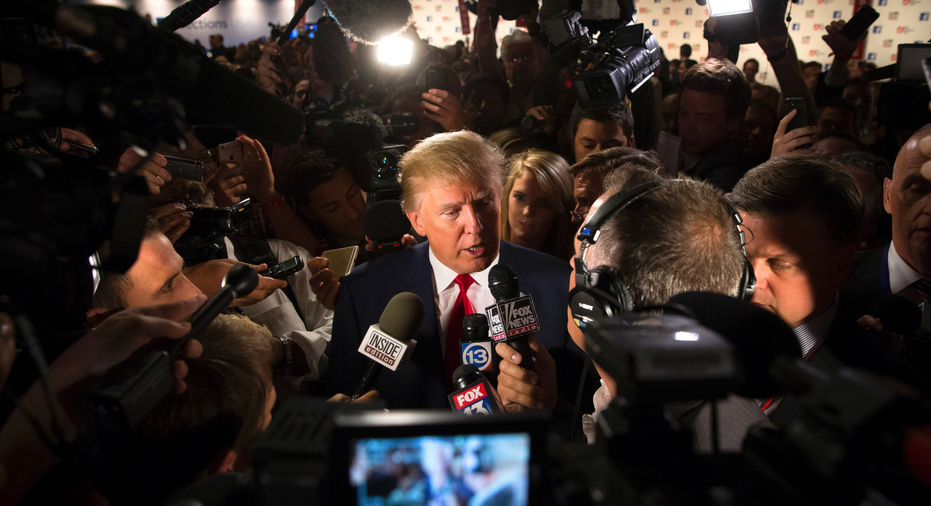Correction: Media-Covering 2020 story

NEW YORK – In a story June 6 about media coverage of the 2020 campaign, The Associated Press reported erroneously the title and a comment made by a participant at a forum sponsored by The Financial Times. At the time, Josh Tyrangiel was executive vice president of Vice News, not executive editor. He also said he made the decision not to cover a routine event involving President Trump three weeks into his presidency, not a few weeks ago.
A corrected version of the story is below:
TV networks staffing up to cover 2020 presidential election
Presidents of ABC, CBS and NBC News all say they're adding more staff to cover the 2020 presidential campaign than they have for any other election
By DAVID BAUDER
AP Media Writer
NEW YORK (AP) — The competitive chiefs of ABC, CBS and NBC News found something to agree on Thursday: Each is hiring more staff to cover the 2020 presidential election than they have for any other election.
That's partly due to growing digital operations at the three broadcast news organizations, as well as the sense that news organizations whiffed on the story in 2016.
"Throughout that campaign, there was a deep-seated assumption that no matter what happened, Hillary Clinton would win," said ABC News President James Goldston, speaking at a "Future of News" conference sponsored by The Financial Times. "I think that was a great disservice to the public."
The sheer number of Democrats looking to challenge President Donald Trump is requiring ABC to bring on more "embeds" — generally young reporters hired to shadow a candidate on the campaign trail — than ever before.
But the hiring goes deeper than that. NBC News recently brought on former newspaper reporters in Texas, Michigan and Nevada and told them to stay where they are; the network wants people with a deep knowledge of their communities to translate that for a national audience, said NBC News President Noah Oppenheim. The only way to cover issues like border security or the impact of trade and climate change on farmers is to have people where the action is, he said.
"Our goal is to go out and tell the stories from the ground up," he said.
It's the same over at CBS, where news division President Susan Zirinsky said news organizations didn't really understand what was happening in the country three years ago.
"I feel that this election, our job is to reveal America to itself," she said.
Goldston said 2016 saw too much coverage of the "horserace" aspect of the campaign — who was up or down in polls and had the best chance of winning. But that's been a criticism of campaign coverage from time immemorial, and rarely is there any great change of emphasis, especially with an abundance of national and state polls.
Whenever news executives gather, Trump is never far from mind. Marty Baron, executive editor of the Washington Post, noted that the president's rhetoric against the press has caused his organization to beef up security for personnel. He acknowledged that Trump has been good for business at many news organizations, and that the Post is already considering what his potential absence from the scene will mean.
Josh Tyrangiel, executive vice president of Vice News, said that when Vice was about to report some routine news about what Trump said or tweeted three weeks into his presidency, he said to stop. He said the president was a "savant" in understanding how media works, and that it's important not to drown in all the material he provides.
"It would be great if we could get more discipline in journalism," he said. "But guess what, I don't run all of journalism."
The television news division presidents warned against the idea that many presidential tweets are background noise that can be ignored. The tweets often predict where the president is headed in policy, Zirinsky said.
"Tweet away," she said. "We'll be reporting on it."



















